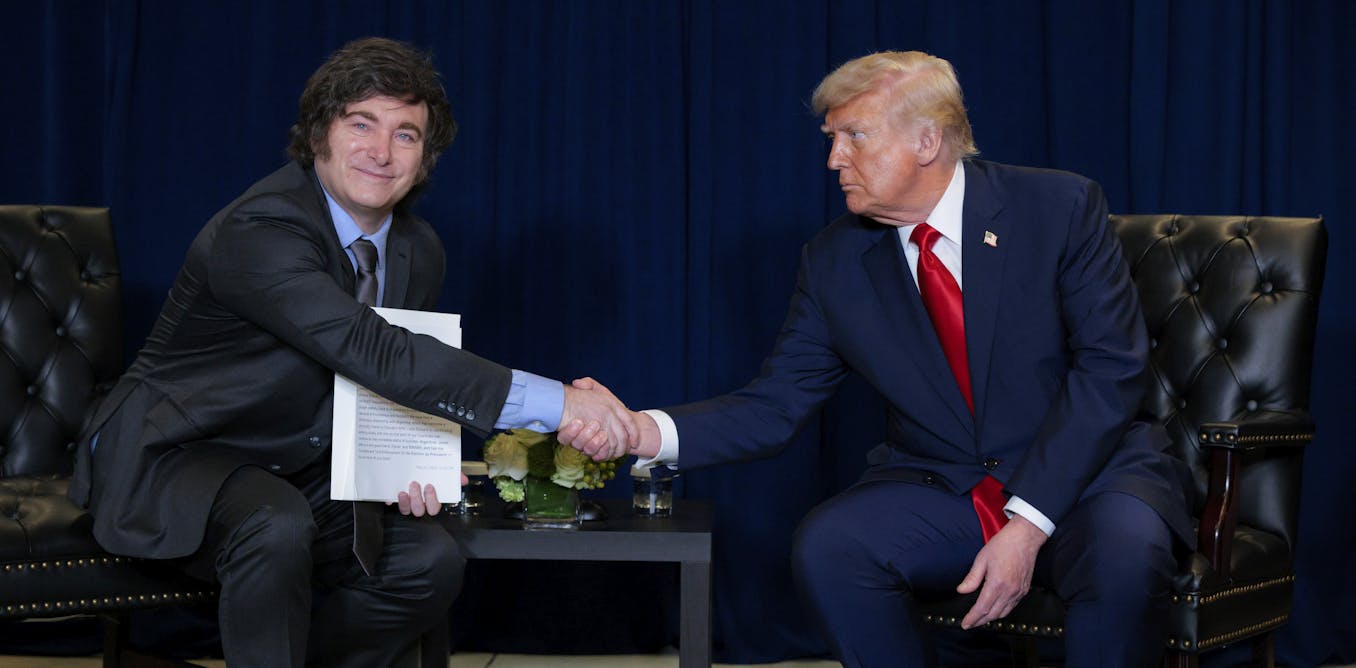President Donald Trump signed an executive order Thursday that is intended to bring order and stability to college sports, though NCAA and conference leaders still stressed that federal legislation is needed to address myriad issues schools and athletes are facing.
The order was announced by the White House a day after it became apparent Congress was still a ways away from passing a bill to help regulate college sports and the way athletes can be compensated.
The SCORE Act, which would help regulate college sports and how athletes are compensated by schools, made it through two Republican-led House committees on partisan lines Wednesday. No college sports bill has ever gotten so far.
The move clears the way for a possible vote on the House floor when Congress returns from summer recess, but with little Democratic support, its chances of passing the Senate are dim.
“We appreciate President Trump’s commitment to protecting the future of college athletics,” the Big Ten, Big 12, ACC, SEC and Pac-12 said in a joint statement. “This executive order builds on the momentum created by the bipartisan SCORE Act, which will provide long-term stability to college sports and expand resources to support the overall well-being of student-athletes.
“We hope Congress sends federal legislation to President Trump’s desk as soon as possible.”
Statement from the ACC, Big Ten, Big 12, SEC, Pac-12 on Trump’s executive order.
Mostly just using it to push approval in Congress. https://t.co/KVv2G283Aw pic.twitter.com/WR1WnJhTVe
— Chris Vannini (@ChrisVannini) July 24, 2025
The executive order highlights many of the same goals that were in a draft version of the executive order obtained by The Athletic last week: protecting women’s and Olympic sports; addressing the employment status of college athletes and antitrust issues that have pulled the NCAA and conferences into constant litigation.
One notable addition from the White House’s announcement: “The Order prohibits third-party, pay-for-play payments to collegiate athletes. This does not apply to legitimate, fair-market-value compensation that a third party provides to an athlete, such as for a brand endorsement.”
“I think it’s notable in that its policies are fully consistent with the NCAA’s long-standing asks from Congress, but the question is: Can it go beyond mere recommendations and actually create requirements that can be enforced?” said Gabe Feldman, professor of sports law at Tulane.
The EO will direct the Secretary of Labor and the National Labor Relations Board to weigh in on the debate over the employment status of college athletes.
It also calls on members of Trump’s cabinet and other political officials to pursue policy and protections in a number of other areas related to college sports, including rules that could be challenged by antitrust complaints and continued opportunity for scholarships and roster spots.
“A national solution is urgently needed to prevent this situation from deteriorating beyond repair and to protect non-revenue sports, including many women’s sports, that comprise the backbone of intercollegiate athletics, drive American superiority at the Olympics and other international competitions, and catalyze hundreds of thousands of student-athletes to fuel American success in myriad ways,” the order said.
“In many ways, this helps schools more than athletes,” one athletic director told The Athletic on the condition of anonymity. “Not sure how enforceable it is, but it’s a step in the right direction.”
Marc Edelman, a professor of law at Baruch College in New York City who has been critical of the NCAA’s attempts to limit compensation to its athletes, agreed.
“Looks like an NCAA press release,” Edelman said of the executive order.
Indeed, in addition to the statement from the major conferences expressing support for the action, Alabama athletic director Greg Byrne praised the EO.
“The University of Alabama applauds this Executive Order from President Trump to help ensure a long-term, sustainable model of intercollegiate athletics,” Byrne said in a statement. “We are proud of our broad-based athletics programs and strongly support future regulatory and congressional action that will preserve these opportunities for student-athletes.”
Yet Sam Ehrlich, assistant professor at Boise State’s college of business and economics, credited the Trump administration with not overreaching with the executive order.
“It would have been a mess if it had tried to give an antitrust exemption, or if it had tried to essentially pass a law on its own,” he said.
An executive order is not law, and any agency policy decisions could face legal challenges. The White House makes clear in the order that it hopes to enforce policies through “federal funding decisions, enforcement of Title IX of the Education Amendments Act of 1972, prohibiting unconstitutional actions by States to regulate interstate commerce” and other protections, while working with Congress and state governments.
The threat of federal funding decisions is notable. Higher education as a whole has been reeling from federal funding stoppages by the Trump administration this year.
Northwestern earlier this month announced budget cuts and a hiring freeze after the federal government froze $790 million in research funding. Columbia on Thursday said it would agree to a $200 million fine, which comes months after the federal government canceled $400 million in grants and contracts. Those decisions by the federal government surrounded allegations of antisemitism and discrimination through the promotion of diversity at universities.
“That part definitely caught my attention,” the athletic director said. “Tying compliance to federal funding creates a big stick, especially for public institutions. After everything higher ed has navigated from D.C. this year, this just adds another layer of political and operational uncertainty.”
The order also directs the DOJ to explore potential litigation against states that pass laws in conflict with NCAA rules on the grounds that they are related to interstate commerce and would be unconstitutional.
Either of those directives could mean going after states and universities where Trump has strong support.
Among the critics of the SCORE Act are a group of state attorneys general that include AGs from Florida, Tennessee and Ohio, along with New York and Washington D.C.
“It’s just going to be very fascinating to kind of watch from a political perspective and a legal perspective to see how much of this can actually be enforced,” Ehrlich said.
Trump has mulled getting involved in the continued legal and legislative friction that has surrounded college sports for months. His interest seemed to gain momentum after a meeting with former Alabama coach Nick Saban in May.
The possibility of creating a presidential commission to study issues facing college sports and recommend possible solutions has been floated and is still a possibility.
While the president’s involvement is seen as significant by increasing the spotlight on the problems facing college sports, an executive order doesn’t provide solid long-term solutions. A change in administration can undo much of what the order can accomplish.
The antitrust protections and pre-emption of state laws that college sports leaders have been lobbying for need to come from federal law.
“The Association appreciates the Trump Administration’s focus on the life-changing opportunities college sports provides millions of young people and we look forward to working with student-athletes, a bipartisan coalition in Congress and the Trump Administration to enhance college sports for years to come,” NCAA President Charlie Baker said.
Chris Vannini and Stewart Mandel contributed to this story.
(Photo: Win McNamee / Getty Images)


